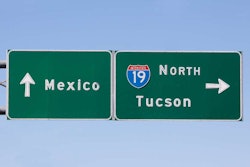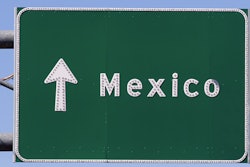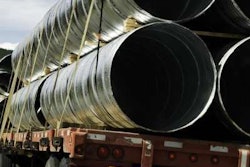The U.S. state department says Mexican trucking trade association Canacar has not filed an arbitration against the U.S., despite reports from earlier in the year, though it did not say whether the arbitration filed by Canacar in 2009 had seen recent action.
Reports from news outlets in Mexico earlier in the year said the trade group had filed a $30 billion arbitration against the U.S. for allegedly violating provisions of the North American Free Trade Agreement by not opening up the border to its members.
The state department confirmed it had not received a Notice of Arbitration since a $6 billion filing by Canacar in 2009. The Department of State represents the U.S. in NAFTA arbitrations, but it did not confirm whether action had been taken on the 2009 arbitration.
“Since we do not comment on whether we are or are not engaged in non-public negotiations, we will not have anything further to share on it,” said a state department official.
Canacar did not respond to a request for comments.
Data on cross-border program could be inconclusive
The Federal Motor Carrier Safety Administration’s cross-border pilot program with Mexico concludes in October, and as of March 30, the agency had surpassed its goal for 4,100 inspections, a number the agency said was necessary to produce valid data during the three-year program.
Only two carriers have generated the majority of inspections, though, says a Congressional report from January. This could raise questions about the quality of FMCSA’s inspection data for the program, the report notes, as the data may not be a representative sample.
Participants have been involved in seven crashes since the program began October 2011. Two of the accidents involved injuries and all required a vehicle be towed from the scene. FMCSA data does not indicate responsibility for these crashes, according to the report.
Most of the program participants have limited their travel in the U.S. to border states, due to factors like arranging backhauls, border wait times and high insurance costs and interest rates.








